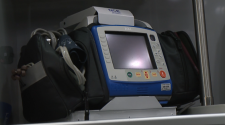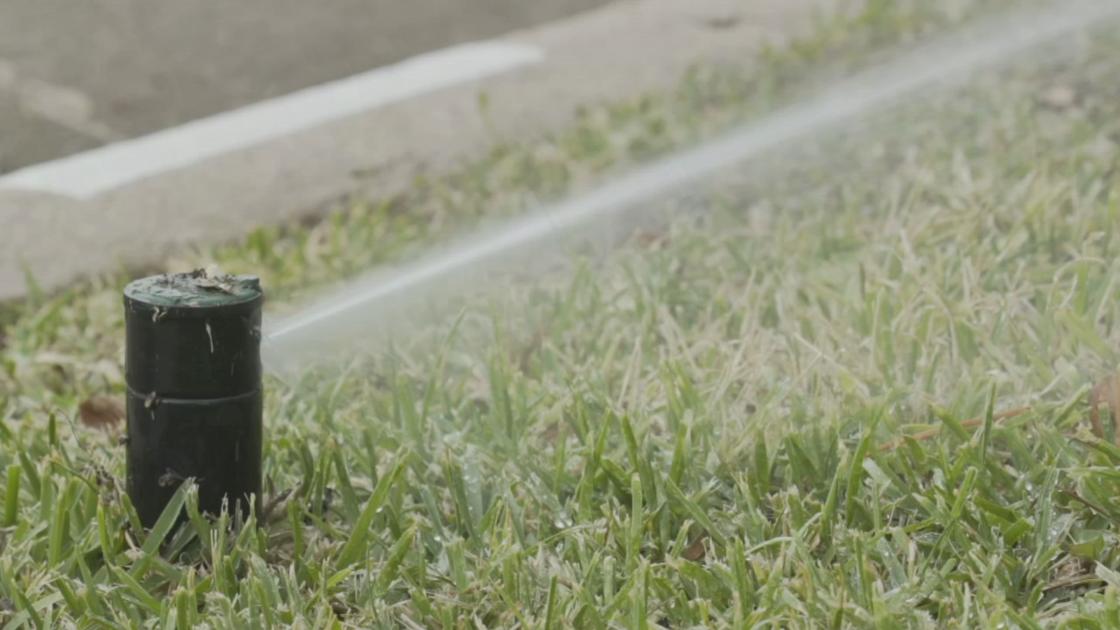PHOENIX (3TV/CBS 5) — While we in Phoenix are desert dwellers, one look around the Valley makes it clear that most everybody likes it green. But if your job title requires you to make sure the 1.6 million residents of Phoenix have enough water to survive, all that green in the middle of the Sonoran Desert can be a challenge.
“We do love our grass here in the Southwest, but about 60% of water use for a single-family home goes towards outdoor irrigation,” Kathryn Sorensen, the water services director for the City of Phoenix, explained.
[WATCH: Granules create “tiny water reserves” in lawn]
All those dishes, loads of laundry, and showers add up to less than half of what you use to water your lush lawn or plants. But the grass isn’t a luxury. It’s an integral part of our unique urban setting, Sorensen said.
“It is really important. We have to find a natural balance, mitigating the urban heat island, which is also a quality-of-life issue and [a] water-conservation [issue],” she explained. “This kind of technology might be what bridges that gap.”
That technology is a substance that looks and feels like table salt, but it’s not. It’s a new potassium complex technology from a California company called Aqua Cents. The granules are injected straight down into the grass to create “tiny water reserves” closer to the surface, so the water is there when the roots need it. The polymer is designed to soak up as much as 400 times its weight in water. It will be tested at a vast soccer field complex at Arizona State University West in a partnership between the City of Phoenix and ASU’s School of Sustainability.
“We heard about an idea that had been tried and tested in California by a number of universities and some long studies,” Jo Ellen Alberhasky, the program coordinator, said. “What we realized is if we applied a hydropolymer, which functions kind of like a sponge, right below the root zone, and it sits right below the roots, and it’s able to absorb 400 times its weight in water, it really functions like salt or a big sponge. It holds the water there, so it doesn’t continue to seep to the ground.”
They’re hoping this new hydrogel technology will cut the water usage on the soccer fields nearly in half. Sorensen is encouraged by the numbers.
“So, these fields use about 11 million gallons of water a year, 40% savings would be more than 4 million gallons a year. That’s a lot of water! It’s also a cost-savings of as much as $25,000 a year for these fields.” she said.
But what about the oppressive desert heat?
“We are modeling this [experiment] after several universities who have done it in the Central Valley of California. [It’s] not quite as hot as Arizona, but it’s quite similar,” Alberhasky explained. “This is a demonstration project to see how well it works in the Arizona climate, in the Phoenix area.
“I am really excited about this technology,” Sorensen said. “If we could roll this out to all the city parks, to large turf facilities across the Valley, eventually to homeowners — absolutely, that is a game changer for us.”
It’s not clear, yet, if this new technology is economically viable in the long-term.
“That’s what we are going to find out, right?” Sorensen responded, “We’re going to prove it out and see what the savings can be!”
CBS 5’s Sean McLaughlin is a nine-time Emmy award winner and anchors CBS 5 News at 5, 6:30 and 10 p.m. alongside Kris Pickel.
Copyright 2019 KPHO/KTVK (KPHO Broadcasting Corporation). All rights reserved.
















